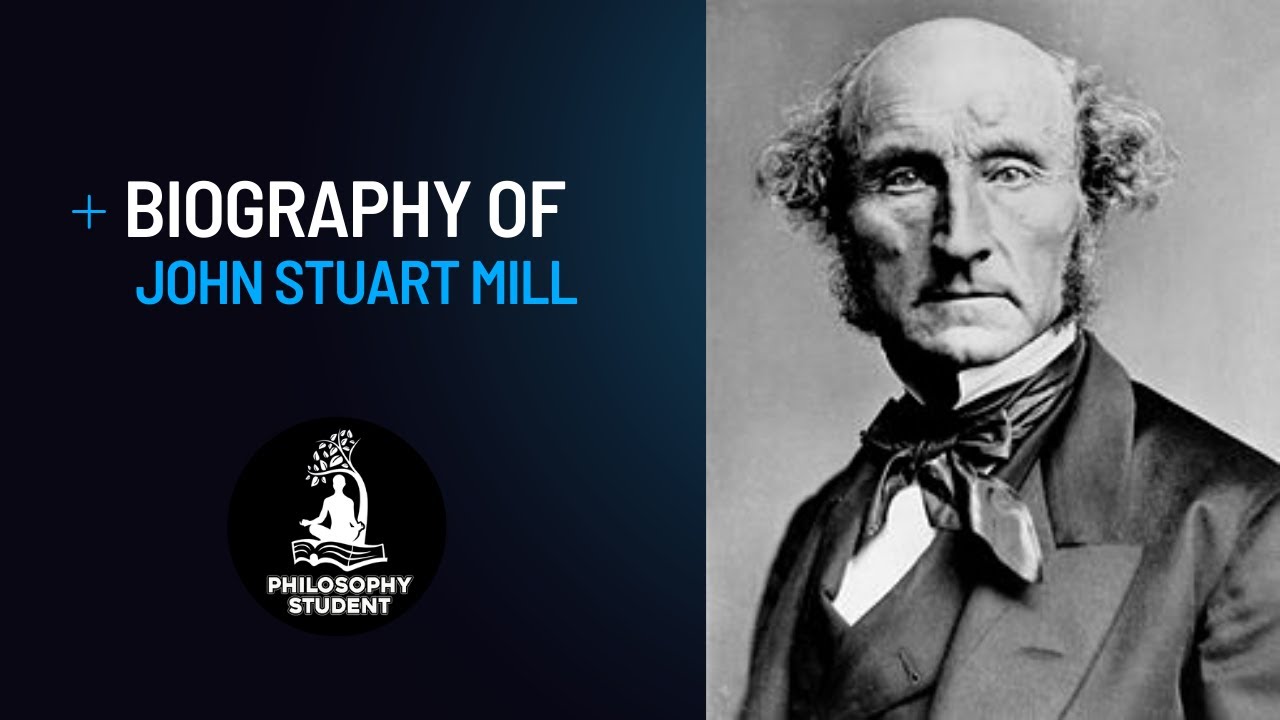John Stuart Mill was a prolific Victorian philosopher, who wrote in the fields of logic, epistemology, economics, social and political philosophy, ethics, metaphysics, religion, and current affairs. He was most influential for his elaboration of the philosophy of Jeremy Bentham into what Mill termed Utilitarianism, which is the title of one of Mill’s major works. Additional major treatises include A System of Logic, Principles of Political Economy, On Liberty, The Subjection of Women, Three Essays on Religion, and his Autobiography
Mill was born on May 20, 1806 in London, the son of historian and economist James Mill, who was a close associate of Jeremy Bentham, with whom he collaborated in the development of utilitarianism. The senior Mill was a founder of philosophical radicalism, which rejected philosophical—and legal—naturalism and supported Bentham’s utilitarian philosophy.
John Stuart’s father gave him a thorough and greatly accelerated education, and in 1820- 1821, the young Mill spent a year of study in France with the family of Jeremy Bentham’s brother, Sir Samuel Bentham. He then read law preparatory to taking a position under his father at East India Company in 1823. He rose rapidly to the position of chief examiner.
In 1822, under the sway of Bentham’s doctrines, John Stuart Mill founded the Utilitarian Society, a political and philosophical discussion group and assumed the de facto leadership of the philosophical radicals. During this period, he wrote for the leading periodicals and, years later, published his System of Logic (1843), Principles of Political Economy (1848), On Liberty (1854), and Considerations on Representative Government (1861). Much of the writing elaborated on utilitarian theories of ethics, government, and economics, injecting into Victorian politics a new emphasis on the role of government in addressing human needs and human welfare.
As a social reformer, Mill was greatly influenced by his wife, the former Harriet Hardy, widow of John Taylor, and a feminist. She and Mill married in 1851, and she died in 1858. Later, as a member of House of Commons during 1865-1868, Mill voted with the radicals and, in The Subjection of Women (1869), presented a cogent argument for equality of the sexes.
Mill retired to Avignon, France, where he completed his Autobiography, which revealed both his unorthodox education and the emotional toll of his intellectual exertions. The book was published posthumously in 1873, his having died on May 8 of that year.
Of his primarily philosophical works, his first major book was his 1843 A System of Logic, which is a key contribution to the philosophy of science and is an empirical justification for Mill’s own moral philosophy. He formulates five principles of inductive reasoning (“Mill’s Methods”), the direct method of agreement, the method of difference, the joint method of agreement and difference, the method of residue, and the method of concomitant variations.
In 1859 came his iconic On Liberty, in which Mill defines the nature and limits of the power that society may legitimately exercise over the individual. He identifies the struggle between liberty and authority as the driver central to much of history and sees it as a contest between subjects or between some classes of subjects and the government. He defines the concept of social liberty as protection from political tyranny, which includes the tyranny of the majority. Liberty itself is the right of the individual to be free to do what he or she wishes, provided that it harms no one. This liberty extends to freedom of speech, which, Mill argues, is essential to advancing society. His confident belief is that the public will ultimately “filter” the wrong and the harmful from speech. The limit of free speech and of individual liberty is defined by the “harm principle.” A government may act to suppress the liberty of an individual insofar as doing so prevents harm to others.
In 1863, Mill’s Utilitarianism set forth what is generally regarded as the most complete and refined exposition of the Utilitarian philosophy and ethics. He not only defined the philosophy but argued that it was, quite simply, the best theory of ethics, and he set out to defend it against a wide range of attacks and criticisms. The book was instrumental in popularizing the Utilitarian point of view and had great influence over political scientists, government, and politicians.
While Mill’s Principles of Political Economy (1848) is claimed chiefly by economists rather than philosophers—it is, after all, a comprehensive textbook of economics—its holistic view of production, distribution, exchange, and the roles of society and government in these matters is very different from the economics textbooks of today. In place of mathematically supported discussion of the mechanics of economics, Mill adopts a sweeping intellectual view with a vision and even a grandeur that characterizes the work of some of history’s great philosophers.
Mill was the embodiment of the practitioner of applied philosophy and stands as one of the foundational philosophers of both Utilitarianism and liberalism in modern Western thought.



































